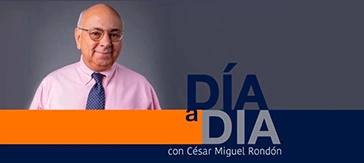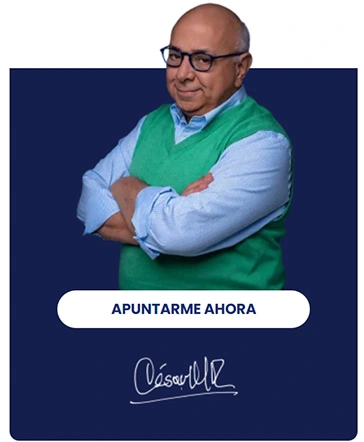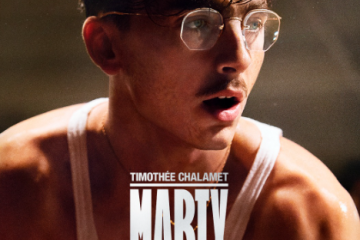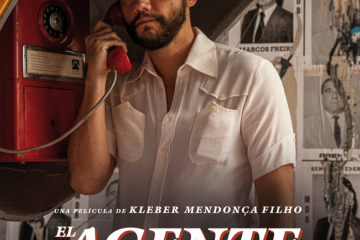Publicado en The New York Times
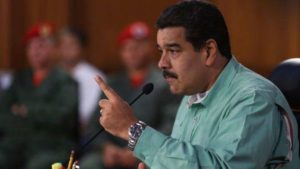 PUERTO CABELLO, Venezuela — For weeks, Alejandro Feo la Cruz, a former opposition mayor who is running for governor, has crisscrossed his state in Venezuela with a simple message: The country’s ruling party can no longer feed its own people.
PUERTO CABELLO, Venezuela — For weeks, Alejandro Feo la Cruz, a former opposition mayor who is running for governor, has crisscrossed his state in Venezuela with a simple message: The country’s ruling party can no longer feed its own people.
Few disagree with him here in the seaside city of Puerto Cabello. Its container port once fed Venezuela but now sits largely empty, and its streets raged with protests against President Nicolás Maduro for months this year.
Polls show that Mr. Feo la Cruz — like most opposition candidates for the governorships up for grabs in all 23 Venezuelan states on Sunday — should be a shoo-in.
But can Mr. Feo la Cruz actually win? And if he does, will he be allowed to govern?
Venezuela is holding its first election since a major consolidation of power by Mr. Maduro in July. The president has put so much authority into the hands of his supporters that most of his neighbors in Latin American now call his government a dictatorship.
His administration stands accused of altering the results of the last election, which installed an all-powerful body that rules the country virtually unchecked.
The new entity has stripped the opposition-controlled Legislature of power, opened a committee to investigate treason charges against opponents and aims to rewrite the Constitution.
And the street protests that have rocked Venezuela for months this year, leaving at least 120 dead, have largely dissolved, leaving few outlets of opposition to the country’s ruling socialist party.
“What we are living is no longer a democracy,” said Mr. Feo la Cruz. But he added that he still saw a chance on Sunday to “convert it back into a democracy.”
Many experts are not as optimistic. Luis Vicente León, who heads Datanálasis, a Venezuelan polling firm whose numbers show wide support for the president’s rivals, says opposition politicians may sweep the statehouses, only to find themselves powerless once they enter them.
“What’s clear is that these governors won’t be able to govern,” he said.
And if the election is any sign of what lies ahead for the opposition, it will be a rough road.
One of its most popular politicians, Henrique Capriles, was banned by the government this year from participating in politics. A half-dozen other opposition mayors were sentenced to jail this summer, with some fleeing the country afterward.
Venezuela’s electoral commission, controlled by Mr. Maduro’s allies, has printed ballots with the names of opposition candidates who are not running and moved many polling places far from neighborhoods that voted for the opposition in the past.
Even the election’s date was manipulated. Venezuelans have been waiting more than a year to vote for governors since the government abruptly suspended the election last year. It rescheduled the vote for the fall only after the protests dissolved.
“I refer to it as an ‘authoritarian project,’ or a ‘deficient democracy,’” said David Smilde, an analyst at the Washington Office on Latin America, a human rights group based in the United States. “There is a big gray zone between dictatorship and democracy that Venezuela is in right now.”
Mr. Smilde said the government’s main motivation for even holding the vote at all was to undo Venezuela’s increasing isolation from neighbors.
The day after the new ruling assembly was formed in July, the Trump administration imposed sanctions against Mr. Maduro and eventually banned banks from buying the state oil company’s debt, aside from short term notes of credit.
Last month, a group of 12 Latin American countries released a statement declaring that they wouldn’t recognize the new governing assembly either, a move that complicates the cash-strapped government’s ability to obtain loans.
“They want to be able to point to this election and say, ‘We are a democracy,’” said Mr. Smilde. “They are hoping to hold on, and that the international community will get used to them as they did with Zimbabwe, Cuba and other countries.”
For its part, the opposition is hoping that the election will give it a political toehold in the country. And it thinks that Mr. Feo la Cruz’s state, Carabobo, is ripe territory for that.
Carabobo was once a prosperous region, home to car manufacturing, oil refineries and the country’s largest port. Carabobo has also been stronghold of Mr. Maduro’s party — a former military officer was its governor until recently — and a place where the nation’s economic collapse has taken a large toll. Above its largely empty port is a garbage dump where people now scavenge for food.
“We’ve been three years without water,” said Asimira Lugo, a 60-year-old retiree who watches over her grandchildren in La Belisa, a barrio that has typically voted for Mr. Maduro’s party.
She was watching a campaign event in which Mr. Feo la Cruz was walking the streets to greet potential voters. The smell of open sewage hung in the air and residents put out buckets to collect rain water.
But while residents said they favored Mr. Feo la Cruz, few turned out that day to see him, reflecting a sense of resignation among many Venezuelans that there was little the opposition would be able to do to turn around the country.
“Now no one believes in anyone,” said Jhonathan Hernández, a 36-year-old kiosk owner in Augusto Pinaud, a working-class neighborhood in Puerto Cabello.
Mr. Feo la Cruz, 46, acknowledged the apathy, particularly after the collapse of the street protests this summer.
“It’s been a slow process,” he said. “Our main challenge has been getting people’s hope back and channeling that energy, the spirit of struggle, using the main weapon citizens have now: voting.”
Mr. Maduro’s party is backing Rafael Lacava, the 49-year-old former mayor of Puerto Cabello, who has spent much of the campaign handing out government-subsidized food and inaugurating new building projects to show his sway with the country’s leaders.
He is also known for spontaneous displays on the campaign, like taking off his shirt during events and releasing a stump speech while he runs on a treadmill.
“Carabobo needs soul, it needs for hope to return,” he said in the video, panting from the exercise machine.
But the enthusiasm has not yet translated into widespread support. Only about 18 percent of voters said they favored him in a September survey by Datanálasis, the polling firm.
And it’s that popular advantage over the ruling party that the opposition hopes will boost it, even if it is likely to remain locked out of actually governing, its candidates say.
“The governorship isn’t a definitive solution, but it’s one way to start breaking up” Mr. Maduro’s power, said José Manuel Olivares, an opposition candidate in the state of Vargas. “They have the weapons and the power, but they don’t have the votes.”




